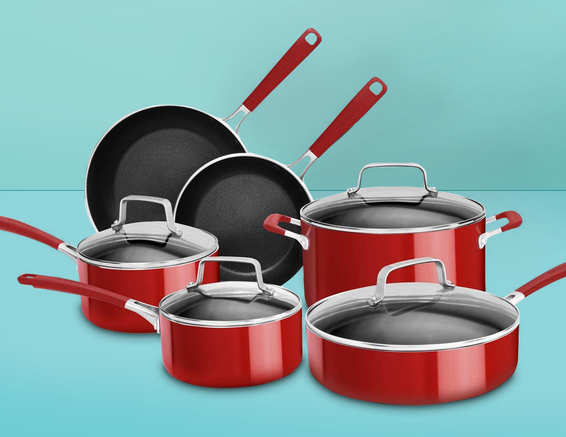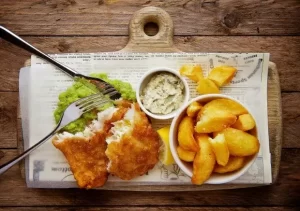
Choosing the right pots and pans for your gas stove can significantly impact your cooking experience. With a wide range of options available in the market, it’s essential to understand the features, materials, and factors that contribute to making the best selection. In this comprehensive guide, we will explore the ins and outs of selecting the perfect cookware for your gas stove. From non-stick properties to heat conductivity, we have you covered with expert advice and valuable insights. So, let’s dive in and find the best pots and pans to suit your culinary needs!
How To Choose The Best Pots And Pans For Your Gas Stove
Investing in the right cookware is crucial for efficient and enjoyable cooking. Here are some essential factors to consider when choosing the best pots and pans for your gas stove:
1. Size Matters
When it comes to pots and pans, size does matter. Consider the size of your gas stove burners and choose cookware that fits well on them. Oversized cookware can lead to uneven heating, while undersized ones may not utilize the entire burner surface efficiently.
2. Material: The Building Block
The material of your cookware plays a significant role in cooking performance. Different materials have varying heat conductivity, durability, and reactivity with food. Here are some popular options:
- Stainless Steel: Durable, non-reactive, and versatile.
- Cast Iron: Excellent heat retention and even cooking.
- Aluminum: Lightweight and excellent heat conductor.
- Copper: Superior heat conductivity but requires maintenance.
- Non-Stick Coated: Ideal for low-fat cooking and easy cleaning.
3. Compatibility with Gas Stoves
Ensure that the cookware you choose is compatible with gas stoves. Flat-bottomed pans work best on gas burners as they provide maximum contact with the flame, resulting in even cooking.
4. Heat Conductivity
For gas stoves, cookware with excellent heat conductivity is preferred. This ensures that the cookware quickly responds to changes in heat settings, giving you more control over your cooking.
5. Weight Considerations
Consider the weight of the pots and pans you intend to purchase. While heavier cookware may have better heat retention, it can be cumbersome to handle, especially when cooking for extended periods.
6. Handles: The Grip Matters
Ergonomic and heat-resistant handles are essential for safe and comfortable cooking. Check for riveted or welded handles that provide a secure grip even when the cookware is hot.
7. Lids and Steam Vents
Opt for cookware with well-fitting lids to trap heat and moisture effectively. Steam vents on lids prevent pressure build-up and ensure your dishes are cooked to perfection.
8. Cooking Style
Consider your cooking style and preferences when choosing pots and pans. If you love frying, sautéing, or stir-frying, a high-quality skillet or sauté pan is a must. Baking enthusiasts may prioritize investing in a sturdy and reliable baking dish.
9. Maintenance and Care
Different cookware materials require varying degrees of maintenance. Consider how much time you are willing to invest in cleaning and upkeep before making a purchase.
10. Budget-Friendly Options
While high-end cookware may offer premium features, there are also budget-friendly options available that provide excellent cooking performance. Evaluate your needs and budget before deciding.
11. Induction Cooktop Compatibility
If you have an induction cooktop in addition to your gas stove, look for cookware that is compatible with both heating methods. Induction-compatible cookware usually has a magnetic base.
12. Multi-Purpose Cookware Sets
Consider investing in multi-purpose cookware sets that offer a variety of pots, pans, and utensils. These sets often provide better value for money and cover a wide range of cooking needs.
13. Non-Toxic Coatings
If you prefer non-stick cookware, look for options with non-toxic coatings that are free from harmful chemicals like PFOA and PTFE.
14. Brand Reputation
Reputable brands often deliver superior quality and performance. Do your research and read reviews to ensure you invest in cookware from trusted manufacturers.
15. Warranty and Customer Support
Check for warranties and customer support provided by the cookware manufacturer. A reliable warranty gives you peace of mind and indicates the brand’s confidence in their product.
16. Oven-Safe Cookware
For recipes that require finishing in the oven, opt for cookware that is oven-safe. Not all cookware can withstand high oven temperatures.
17. Stackability and Storage
Consider the stackability and storage requirements of the cookware you choose, especially if you have limited kitchen space.
18. Conductive Disk Bottoms
Some cookware comes with conductive disk bottoms to improve heat distribution, making them ideal for gas stoves.
19. Try Before You Buy
If possible, visit a store and handle the cookware before purchasing. A good grip and feel can impact your cooking experience positively.
20. Environmental Impact
For eco-conscious individuals, exploring cookware made from sustainable and recyclable materials may be a priority.
21. All-in-One Sets vs. Individual Pieces
Decide whether you prefer an all-in-one cookware set or want to buy individual pieces based on your specific cooking needs.
22. Longevity and Durability
Invest in high-quality cookware that will stand the test of time and provide many years of exceptional cooking experiences.
23. Dishwasher-Safe Cookware
If convenience is paramount, opt for cookware that is dishwasher-safe for easy cleanup.
24. Stovetop Compatibility
Ensure that the cookware you choose is compatible with other stovetops (electric, ceramic, etc.) if you have additional cooking appliances.
25. Personal Recommendations
Don’t hesitate to seek recommendations from friends, family, or professional chefs. Personal experiences can offer valuable insights.
FAQs
Q: Are non-stick pans safe for gas stoves?
A: Yes, non-stick pans are safe for gas stoves as long as they are made with materials that can withstand the high heat generated by gas burners.
Q: Can I use stainless steel cookware on a gas stove?
A: Absolutely! Stainless steel cookware is an excellent choice for gas stoves due to its durability and versatility.
Q: How do I know if my cookware is compatible with induction and gas stoves?
A: Induction-compatible cookware usually has a magnetic base, while flat-bottomed cookware works well on gas stoves.
Q: What is the best material for even heat distribution on a gas stove?
A: Copper and aluminum are renowned for their excellent heat conductivity, making them ideal choices for even heat distribution on gas stoves.
Q: Is it necessary to spend a lot on high-end cookware?
A: Not necessarily. While high-end cookware may offer extra features, there are many affordable options that provide excellent performance.
Q: Can I use glass cookware on a gas stove?
A: Glass cookware is generally not recommended for gas stoves as it may shatter due to sudden temperature changes.
Conclusion
Choosing the best pots and pans for your gas stove can elevate your cooking experience to new heights. Consider factors such as size, material, heat conductivity, and compatibility with your gas stove to make a well-informed decision. Remember to prioritize your cooking style and needs while exploring various options. With the right cookware in your kitchen, you can unleash your culinary creativity and delight your taste buds with every dish you prepare.








